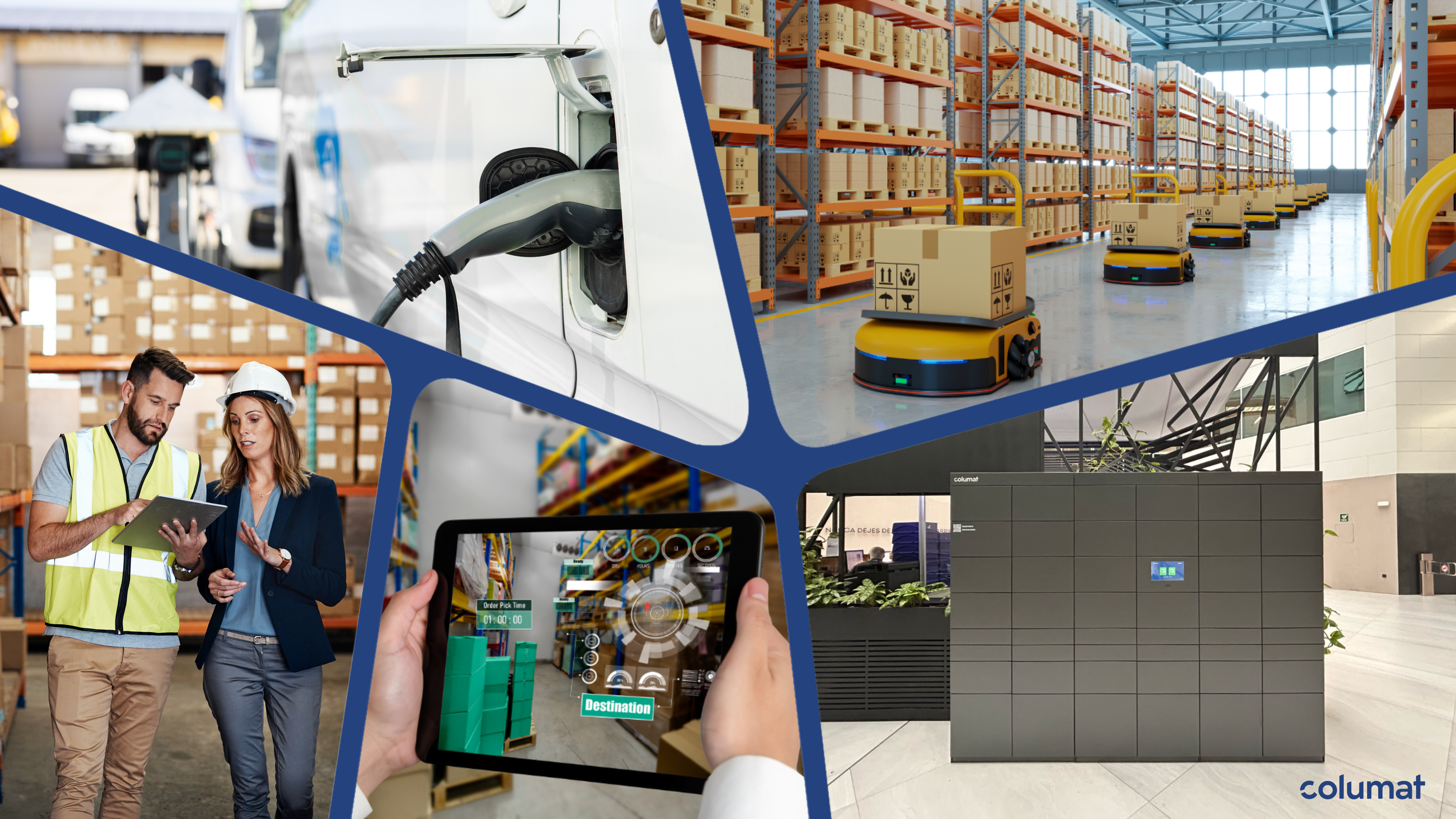Sustainable Logistics
Sustainable logistics: Taking care of the planet with every shipment
In an increasingly environmentally conscious world, sustainability has become fundamental in all areas of our lives, including logistics. Logistics companies have a responsibility to reduce their environmental footprint without compromising efficiency. Fortunately, there are numerous sustainable tricks and practices that can be implemented in logistics, and in this article we will introduce you to 10 strategies to achieve sustainable logistics and contribute to environmental stewardship.
Optimize transportation routes:
Use route planning tools and software to optimize routes and minimize distance traveled. This will reduce greenhouse gas emissions and maximize efficiency in product delivery. To minimize transport route distances, the implementation of pick-up points in the last mile logistics process is very useful.
Encourages full truckload and shipment consolidation:
Make the most of your vehicles' cargo capacity by consolidating shipments. This will help avoid transporting partial loads and reduce the number of vehicles on the road, thus reducing pollution and costs.
Sustainable logistics with environmentally friendly vehicles:
Invest in more efficient and environmentally friendly freight vehicles, such as those that run on electric, hybrid or natural gas power. These vehicles emit less polluting gases and contribute to reducing dependence on fossil fuels.
Commitment to sustainable packaging:
Use packaging materials that are recyclable, biodegradable and from renewable sources. Reduce the use of plastics and look for more eco-friendly alternatives, such as recycled cardboard. This not only reduces waste, but also improves your company's image.
Implement reverse logistics practices:
Establishes an efficient system for managing product returns and recycling. Promote the reuse, recycling and repair of goods instead of discarding them. In this way, you will reduce waste generation and mitigate environmental impact.
Digitalize your processes:
Optimize your operations by digitizing documents, invoices and records. Use online management and tracking systems to minimize the use of paper and reduce the consumption of natural resources.
Collaborate with sustainable suppliers:
Select suppliers who are committed to sustainability and actively work to reduce their environmental impact. Together, you can find more eco-friendly solutions and promote responsible practices throughout the supply chain.
Train your team:
Educate your employees about the importance of sustainability in logistics and provide them with the necessary training to implement more sustainable practices in their daily work. Foster a culture of environmental responsibility throughout the organization.
Monitor and measure your carbon footprint:
Track carbon emissions and other relevant environmental indicators. Use tools and metrics to measure your carbon footprint and set continuous improvement goals in terms of emissions reduction.
Communicate your commitment to sustainability:
Share your company's sustainability efforts and achievements with your customers and partners. Transparency and open communication will help build a strong reputation and attract those who value responsible practices in logistics.
Here is a link to a logistics company and its sustainability:
https://www.columat.com/sostenibilidad/
In conclusion, sustainable logistics not only benefits the environment, but also your company in terms of reduced costs and improved operational efficiency. Every little action counts, and by adopting sustainable practices in logistics, you are contributing to a greener and more sustainable future for everyone. Start making a difference today by using smart lockers and pickup points for more efficient and planet-friendly delivery!


